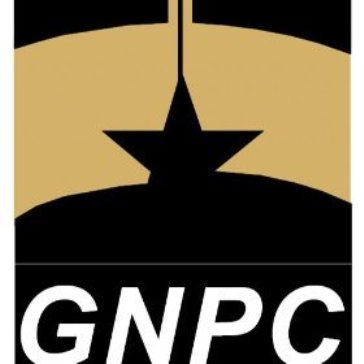GNPC begins decommissioning of Saltpond Oil Field
 The Ghana National Petroleum Corporation (GNPC) will from Monday, September 26, begin the technical decommissioning of the Saltpond Oil Field in the Central Region, Ghana’s oldest oil field.
The Ghana National Petroleum Corporation (GNPC) will from Monday, September 26, begin the technical decommissioning of the Saltpond Oil Field in the Central Region, Ghana’s oldest oil field.
This follows the arrival of the long-awaited jack-up rig and supporting vessels from Lagos, Nigeria, needed to undertake the exercise.
The rig got to Saltpond on Saturday, September 24, 2022 in the company of security officials and was about three hours away from the drilling installation (Mr Louie Rig) as of 1430 hours Sunday.
The GNPC will officially hand over the platform to the contractor, Hans and Co Gas and Oil Service Providers, on Monday, after which work will commence immediately.
The exercise, the first ever in Ghana, will permanently seal all six wells of the oil field, remove all pipes and completely dismantle the rusted and deplorable drilling platform to restore that area of the sea to its original state.
All the necessary permits have been secured to undertake the exercise.
The Saltpond Oil Field, about 105 kilometres west of Accra and 13 kilometres off the coast of Saltpond, was discovered in 1970.
The field is in a water depth of 85 feet and extends over an area of five square kilometres.
It was producing up to 4,800 barrels of oil per day at its peak from two out of six wells drilled.
But production plummeted to below 200 barrels of oil per day by 2015 to make the operational cost higher than production.
Consequently, the Ministry of Energy, in August 2016, directed the GNPC to decommission the field based on the recommendations from state institutions including the Environmental Protection Agency.
The Corporation, therefore, initiated a field decommissioning process in 2018 with the first phase of studies and a development of a plan duly completed and approved by the Ministry of Energy.
Addressing the press in Saltpond on Sunday, Dr Kwame Baah-Nuakoh, the General Manager, Sustainability and Stakeholder Relations, GNPC, explained that the decommissioning exercise had become necessary because the oil field was no longer economically viable.
He said the wells and wellheads were in a deplorable state, posing a threat of oil spillage, which would adversely impact aquatic life, the lives of fishermen, and those with facilities along the beaches.
“If we leave this platform for the next two years, nobody knows what will happen because the structural integrity cannot be guaranteed,” he said.
“virtually all metals have corroded and could cause disaster.”
Dr Baah-Nuakoh said the drilling installation would be cut, transported to the shore and recycled or sold as scrap to develop the catchment communities.
He assured that all safety measures were being strictly followed to avert any accident, including spillage.
“The plan is to ensure that no hazardous waste is left on the sea. The Corporation has put in place a robust emergency response plan of international standards to manage any incident, in the unlikely event – it occurs,” he said.
“What we are hoping to do is to restore the area to its economic level for fishing and hopefully reassign it to see if we can find oil there because history shows there’s oil there.”
Dr Baah-Nuakoh warned fishermen to keep a minimum distance of 500 meters away from the oil field and said the navy would be deployed to enforce the directive throughout the decommissioning process.
He noted that part of the decommissioning agreement with the contractor was to ensure the transfer of knowledge and technology so that future decommissioning would be done by Ghanaians.
He expressed gratitude to Parliament for its continuous support throughout the exercise.
Madam Patience Lartey, Deputy Manager, Social Performance and Local Content Sustainability and Stakeholder Relations, GNPC, noted that all stakeholders within the affected catchment communities had been engaged in series of meetings to get their buy-in and support.
Nana Kwesi Brevo III, the Chief of Kuntu, appealed to the GNPC to compensate the community with some development projects for hosting the oil field since its inception.
Source: GNA
